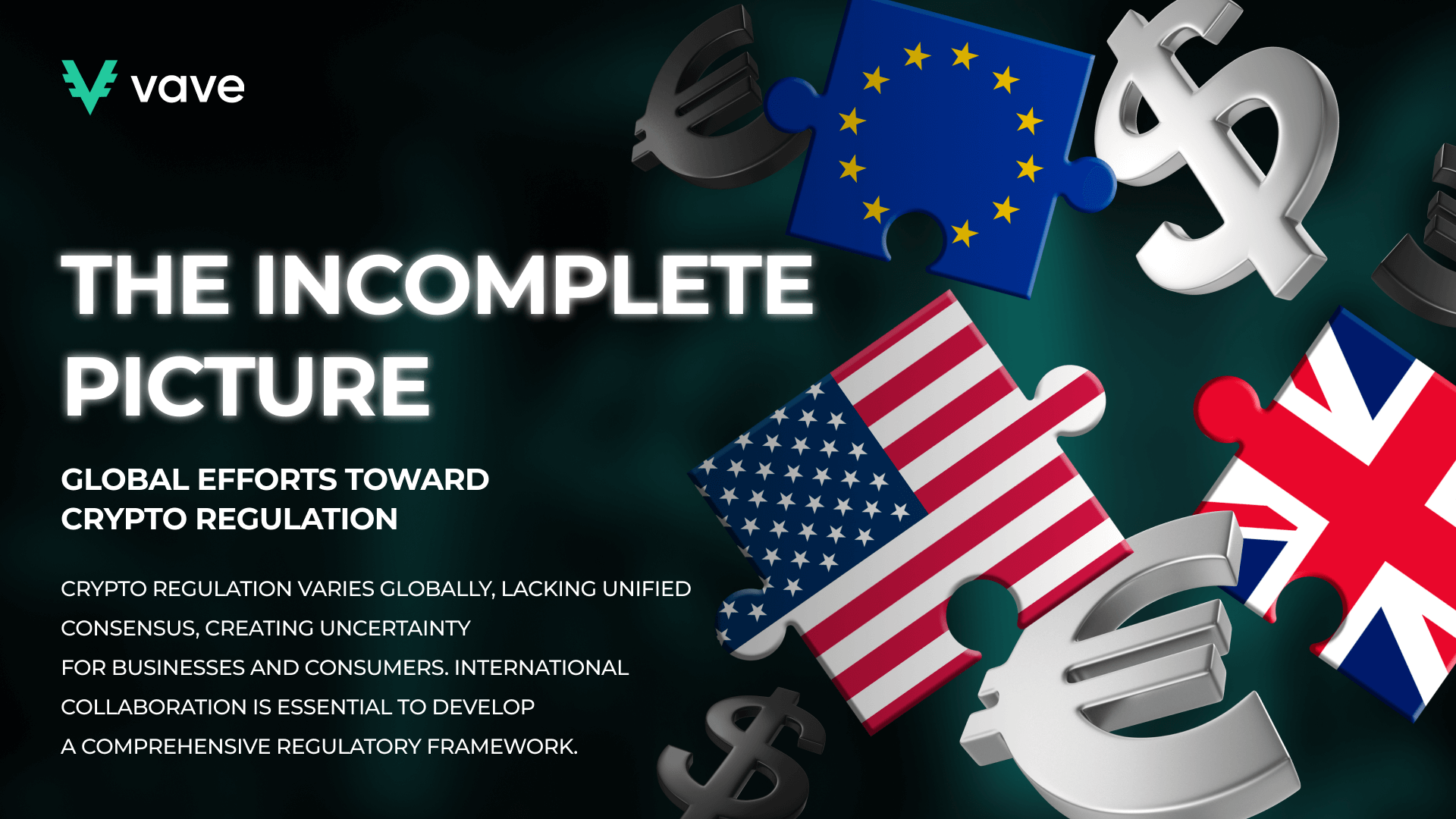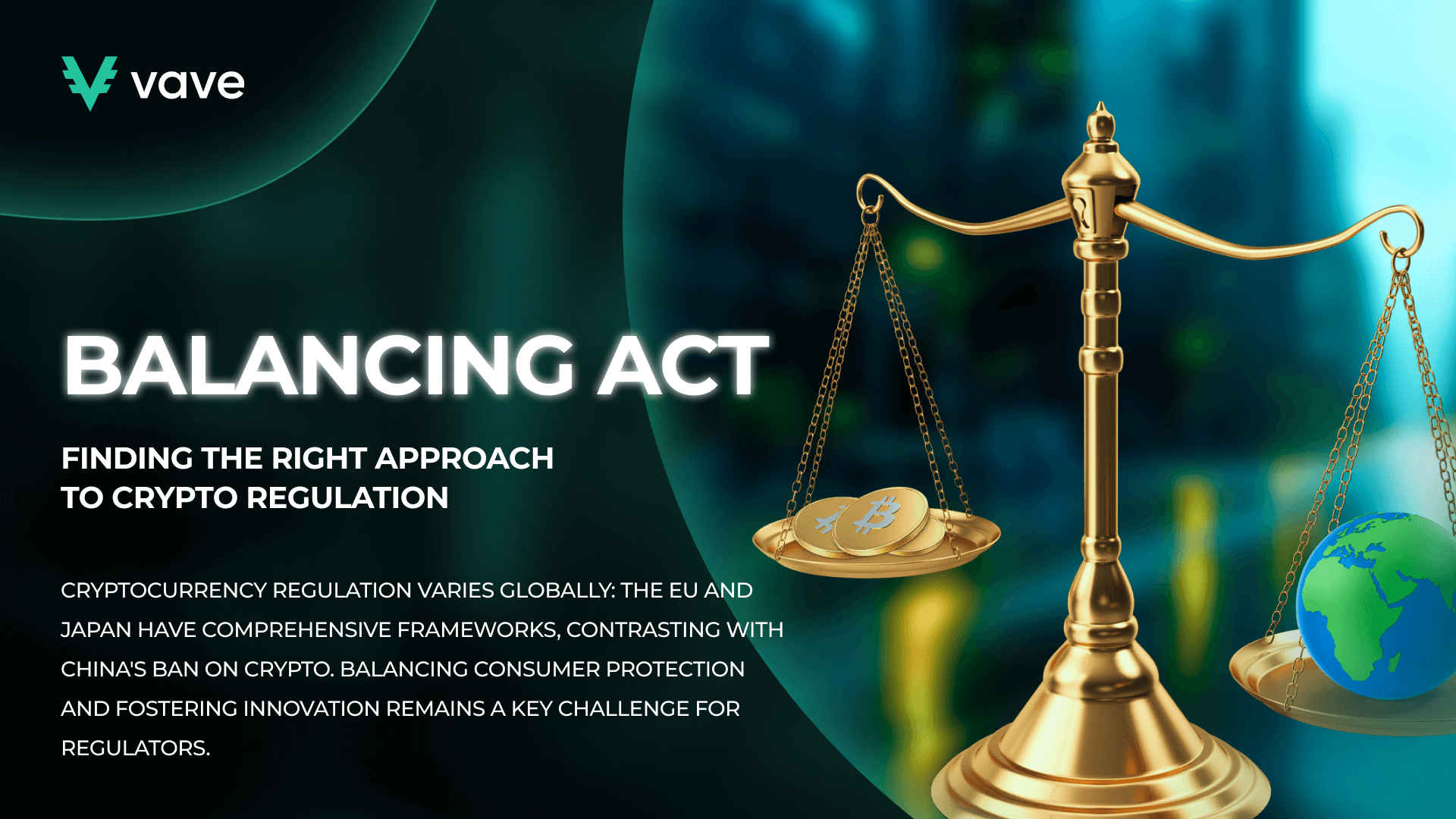Most people today know that cryptocurrency is no longer merely a speculative investment; it has become a new asset category. What’s more, it has also spurred governments across the world to explore ways to handle it. Reports show that by January 2024, several governments created comprehensive legal frameworks that were meant to protect both customers and businesses. However, others are still speculating on these issues.
Digital money has become quite an influential factor in the global financial landscape today, and we all know it. Bitcoin and Ethereum, among others, are now established as major cryptocurrency investments. Still, the approaches to regulating digital money as an asset and as legal tender vary from country to country. The European Union (EU), for instance, has expanded its sweeping framework, the Market in Cryptocurrency Asset (MiCA). The United Kingdom has its equivalent based on the national legislature. At the same time, the USA too is hovering over an expanded form of crypto regulation.
Customers, issuers, companies, and regulators – the stakeholders at the heart of the issue – are quite busy fighting it out in judicial systems across the world to try and bring some regulations. What we must understand is that cryptocurrency is subject to several different approaches across the world.
To grasp what regulation can look like, we must first study the principles of cryptocurrency market regulation in different countries. This could be vital for investors seeking to use Vave Casino. Crypto terminology has already become an integral part of online gambling in 2024, and one can only expect it to grow further. Crypto bankroll management, nonetheless, has its distinctive features. Therefore, having as much information as possible regarding this issue is valuable.

Approaches to Regulation
As mentioned earlier, cryptocurrency regulations are still being developed and evolved worldwide. Some countries are creating comprehensive crypto regulation policies, while others trail behind. A lot of countries have dallied with partial regulation while others are still taking steps to control as much space as possible.
Crypto exchanges in the USA, for example, are subject to quite a few regulations. In the EU, however, there are laws governing crypto service providers in effect which may even result in punitive justice in case things do not go well. In the United States, the Securities and Exchange Commission (SEC), the Commodity Futures Trading Commission (CFTC), and the Financial Industry Regulatory Authority (FINRA) are all involved in regulating crypto. The slightest of caveats remain in regulating crypto transactions between private wallets.
Cryptocurrency Regulations Around the World
The current status of cryptocurrency across the world is known to be one of a sound nature. We have compiled a list of regulations in cryptocurrency across the world here.

United States
In 2022, the United States of America announced a law relying on traditional market regulators, but left some issues to be contested in courts. Cryptocurrency sales are regulated if they constitute the sale of a security under state or federal law, or are considered money transmission under state law. This also applies if the person is seen as a money services business (MSB) under federal law. Moreover, futures, options, swaps, and other derivative contracts that refer to the price of a crypto asset that constitutes a commodity are subject to regulation by the CFTC under the Commodity Exchange Act (the CEA).
The long battle between government agencies, brokers, investors, and the crypto world proves that crypto regulation in the largest economy of the world is still evolving. In 2024, the U.S. passed the Financial Innovation and Technology for the 21st Century Act (FIT21) to create a more specific regulatory framework for digital assets. As such, the SEC continues its enforcement actions, while the CFTC oversees digital assets as commodities. Still, major cases like Coinbase’s challenge and Ripple’s battle remain unresolved, and continue to influence the U.S. regulatory approaches.
Canada
Digital money is not yet legal tender in Canada. Nevertheless, the country has been very assertive about crypto regulation, and we get the feeling that they want to get it done soon. Canada, notably, was the first to approve a Bitcoin exchange-traded fund that operates on the Toronto Stock Exchange.
The Canadian Securities Administrators (CSA) mandates that crypto trading platforms and companies get themselves registered with their provincial regulators. As per their tax policy, Canada treats cryptocurrency like commodities.
United Kingdom
The UK government sees the country as a global crypto hub, which is quite a welcome move. This intention reflects the UK’s status as a traditional financial centre as has been the case for centuries. The country’s vision was set out in 2022 with stablecoins as a valid payment method. This commitment to the latter has led to the UK’s regulatory framework development. The priority is scaling up and expanding the stablecoin industry with the goal to treat crypto investments equal to other financial tools.
This country has extensive lawmaking on crypto assets, which is broadly based on the Financial Services and Markets Act, which was enacted in June 2023. However, this regulation lacks detailed principles, which are left to the country’s financial authorities. Yet, it contains KYC standards, anti-money laundering (AML), and provisions for combating the financing of terrorism (CFT).
European Union
The centrepiece of the EU crypto regulation is an exhaustive framework: Markets in Crypto Assets (MiCA). This framework was adopted in June 2023 and regulates crypto asset markets. Like in the UK’s case, the regulation focuses on stablecoins.
Europeans generally believe in the fact that crypto assets have a ‘stable value’ compared to fiat currencies. The MiCA provides a legal foundation for government control of the crypto industry, which is quite a big move. MiCa aims to protect all cryptocurrency operations and transactions by individual investors or institutions.
Japan
Japan, quite interestingly, has adopted a progressive approach to the regulation of cryptocurrency. The national legislature recognizes crypto as legal property, which is an extremely progressive stance. All crypto exchanges must register themselves with the Financial Services Agency (FSA) and comply with AML/CFT obligations.
In the year 2020, when COVID-19 hit the world, the Japanese Virtual Currency Exchange Association was established, and all crypto exchanges are its members. The Act on Prevention of Transfer of Criminal Proceeds, adopted in 2023, contains conditions to stop criminals from using cryptocurrency exchanges to launder money.

Australia
Australia, like Japan, classifies digital money as legal property. In 2019, the Australian Securities and Investments Commission (ASIC) presented regulatory provisions for ICOs. This resulted in local crypto exchanges being directed to ban private coin offerings.
In the year 2021, Australia declared their endeavour to create a licensing framework around cryptocurrency. Ultimately, this framework must lead to the launch of a central bank digital currency (CBDC). The financial authorities announced plans to develop a regulatory framework by 2024.
China
Unlike most countries of the world, China – as might be expected – takes a rigid stand on cryptocurrency. The People’s Bank of China completely bans cryptocurrency as an asset or legal tender. The same thing is true with crypto mining. For example, the Bitcoin mining ban has been in force since May 2021.
By September 2021, all cryptocurrencies were forbidden because the government considers them to be dangerous instruments. It wants to maintain control over all financial operations in the country, which includes cryptocurrency mining and using it as an asset or legal tender.
India
Most experts agree that India is the future powerhouse of the world economy. However, with regard to cryptoeconomics, it is balancing on the fence. The government – surprisingly – has not chosen a clear strategy yet regarding cryptocurrency.
India neither legalizes nor penalizes cryptocurrency use. A bill to ban cryptocurrency in the country’s Parliament has been put forth, but the chances of its adoption are remote. In 2022, the country defined digital assets as property and set out legal conditions for collecting taxes on crypto income – 30% on income from crypto transactions and 1% tax deduction on transactions exceeding a certain limit.
South Africa
In South Africa, cryptocurrency is legal, which is a major boost to investors. The national regulatory model is moderately supportive of cryptocurrencies with individuals and companies allowed to legally use digital money.
Several crypto exchanges and online trading platforms operate in the rainbow nation with the Financial Service Conduct Authority (FSCA) as their regulator. Crypto assets are considered regular financial assets and are taxable in general in South Africa.
Brazil
What most punters would like to know is that until recently, Bitcoin and other cryptocurrencies were not legal tender in Brazil. However, a law legalizing crypto as a payment method has significantly boosted the adoption of digital currencies.
In November 2022, Parliament approved a regulatory framework legalizing the use of cryptocurrencies as authorized tender. This legislation came into force on June 20, 2023. The main regulatory body on cryptocurrency in this country is the Central Bank of Brazil.
Conclusion
Bitcoin, the first cryptocurrency, was introduced in 2009 but governments and financial institutions around the world are still developing regulations for the same. Consumers and companies must be protected from fraud and crimes, and these have to go along with the cryptocurrency’s main features, like anonymity and decentralization.
People hope that governments will use cryptocurrencies as financial instruments in the years to come. Some countries, like India or Brazil, are slowly moving toward this direction while others such as the United Kingdom or the EU have already made significant progress. There are, of course, exceptions, like China where cryptocurrency is completely banned.
The future of cryptocurrency, nonetheless, looks bright, and the development of global market laws in this field is proof of it. Of course, online gambling is part of this trend. This is why Vave Casino provides its customers full customer support on crypto operations. You can play our top winter slots, and pay with crypto.
FAQ
What is crypto regulation?
What institution is in charge of the cryptocurrency industry in the United States?
What is MiCA?
Does Vave Casino allow gambling using cryptocurrency?


















